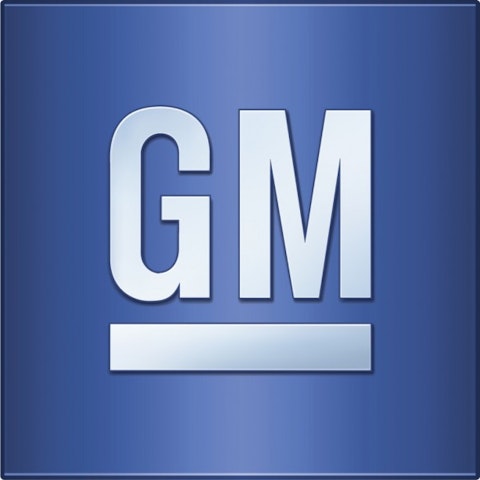Full-size pickups have been the primary driver behind the recovering auto sector in the U.S. The U.S. automobile industry witnessed another robust month of auto sales in May, which were up 8.2% from last year. Auto giants sold over 1.4 million vehicles during the month. This came as a relief to the car makers, particularly after the disappointing growth in April when the annualized rate fell below 15 million.
General Motors Company (NYSE:GM), Ford Motor Company (NYSE:F), and Toyota Motor Corporation (ADR) (NYSE:TM) topped in terms of market share. However, in terms of sales gain, Ford, Chrysler, and Nissan Motor Co., Ltd. (ADR) (OTCMKTS:NSANY) were the winners. Let’s take a closer look at some of the essential numbers.
A look at the numbers
General Motors Company (NYSE:GM) occupied 17.5% of the market. Ford Motor Company (NYSE:F) followed its Detroit rival close behind at 17.1%, while Japan-based Toyota Motor Corporation (ADR) (NYSE:TM) captured 14.4% of the auto sales. Though the largest U.S. auto giant enjoyed the biggest market share, it experienced a sales growth of just 3.1% by selling 252,894 vehicles. General Motors Company (NYSE:GM)’ Cadillac brand saw impressive sales gain of 40% after it introduced two sedans. Chevrolet Sonic, Chevrolet Cruze, and Buick Verano also experienced phenomenal double-digit growth. However, the sales gain was nearly nullified by Chevrolet Malibu sales which plunged over 30%.
Ford Motor Company (NYSE:F) sold about 246,019 cars and trucks and recorded strong sales gain of 14.1%. This was primarily driven by the robust sales of its F Series pickups, which went up 30.6% to around 72,000 units and the Escape SUV that reported 26.2% sales increase.
Chrysler saw notable sales rise of 11% by selling 166,596 vehicles, experiencing its best May since 2007. The automaker’s Dodge brand and Ram truck boosted its sales during the month.
Toyota Motor Corporation (ADR) (NYSE:TM) sold 207,952 vehicles during May, witnessing a rise of 2.5% over the prior year period. The lead car maker’s Prius sales climbed 9.5%, but Camry sales were flat compared to last year. The automaker’s Vice President, Bill Fay, said that ‘an excellent Memorial Day weekend’ in May was one of the primary reasons behind such solid sales.
Honda Motor Co Ltd (NYSE:HMC)’s sales increased 4.5% to 140,013 units while Nissan Motor Co., Ltd. (ADR) (OTCMKTS:NSANY) saw an incredible rise of 24.7% to 114,457 vehicles for the month. Nissan’s solid sales rise is majorly attributable to its midsize sedan Altima which experienced sales growth of 41%. In addition, its revamped Pathfinder SUV’s sales grew fourfold. Moreover, Nissan Motor Co., Ltd. (ADR) (OTCMKTS:NSANY) sold 2,100 units of the Leaf and recorded its best ever monthly sales for the electric car since its launch a couple of years back.
Rise in demand for the pickups is driving the U.S. auto industry. Let’s take a brief look at the driving forces that behind the growth in the auto sector.
Supporting factors
The industry sold only 10 million vehicles in 2009 during the recession. Sales recovered over the past four years and the auto industry recorded the sales of 14.5 million cars and trucks in 2012. This year, the industry is estimated to sell over 15 million vehicles.
The revival of the housing industry, which grew 12% in the first quarter of the year, has boosted the demand for pickup trucks, which in turn increased consumer confidence. Builders’ demand for commercial vehicles is increasing as the construction industry recovers. General Motors Company (NYSE:GM) reported a 17% rise in the sales of vans to its commercial customers. Both General Motors and Ford observed greater demand for pickups from drilling regions like North Dakota and Texas and Montana. In addition to this, smaller businesses like the heating and air-conditioning companies, florists, and electricians are also buying trucks.
Light vehicle sales have also been strong in the current year, which is primarily boosted by easy credit availability at low interest rates. A 48-month loan costs as reasonable as 2.92%, as per Bankrate.com. Buyers are rushing into showrooms to replace their old cars with an average age of over 11 years. The Memorial Day sales were also crucial to May’s fantastic sales numbers.
Anticipating better demand in the second half of the year, domestic automakers have either shortened or skipped their traditional summer shutdown to boost production levels. In fact, Ford Motor Company (NYSE:F) is preparing to augment its production by 10% to 740,000 vehicles in the third quarter. Automakers are adopting several discount offers and other incentives as tactics to sustain the present level of growth. Nissan Motor Co., Ltd. (ADR) (OTCMKTS:NSANY) gave a discount of $580 in the list price of seven models. Moreover, automakers including Chrysler, Honda Motor Co Ltd (NYSE:HMC), and Nissan are giving incentives of extra rebates to dealers who meet sales targets.
My takeaway – a word of caution
Auto giants are working very hard to keep up the current momentum. But the question is, how long will the current growth rate of the auto sector continue? Several analysts are skeptical that if the Federal Reserve stiffens its economic stimulus, the auto industry would be hit very hard.
Incentives such as easy credit, lengthier repayment period, and low finance cost cannot be long-term solutions for the industry to lure buyers. The solution is in creating jobs which shall lead to income growth of the buyers. Lacey Plache, the chief economist of Edmunds.com, rightly points out that the recovery of the labor market shall help buyers purchase vehicles and make car loan repayments more than anything else.
Rajesh Marwah has no position in any stocks mentioned. The Motley Fool recommends Ford Motor Company (NYSE:F) and General Motors Company (NYSE:GM). The Motley Fool owns shares of Ford Motor Company (NYSE:F).
The article U.S. Automakers Delighted by May Sales originally appeared on Fool.com.
Rajesh is a member of The Motley Fool Blog Network — entries represent the personal opinion of the blogger and are not formally edited.
Copyright © 1995 – 2013 The Motley Fool, LLC. All rights reserved. The Motley Fool has a disclosure policy.





